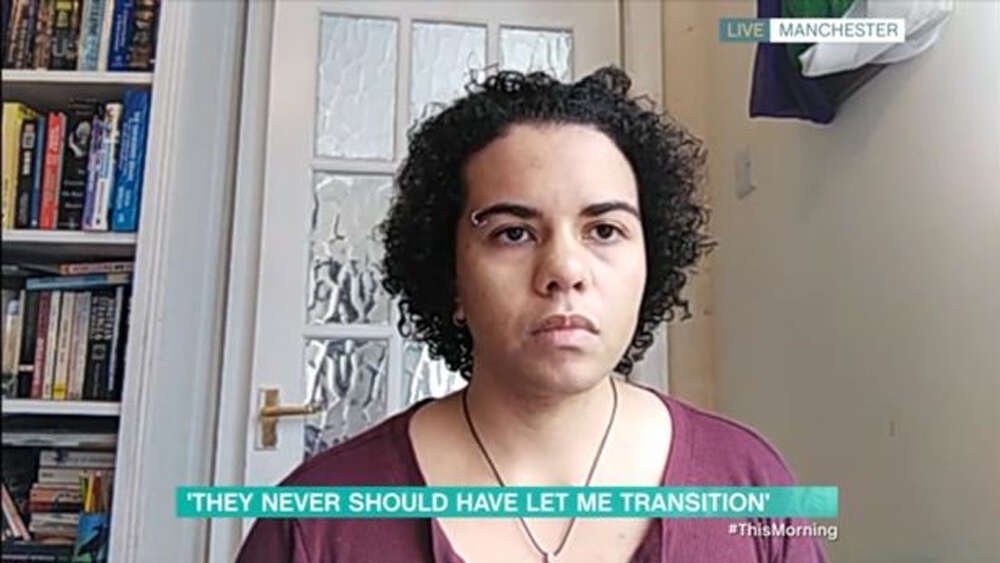Kiera Bell who was prescribed puberty blockers at the age of 16 has won an agenda-setting case in the UK High Court. The ruling means that drugs and cross-sex hormones for under-16s will be permitted only when approved by a court.
This case marks a reversal for London’s influential Tavistock Centre which runs the Gender Identity Development Service (GIDS), a prominent service which accepts referral from across the UK.
Bell now 23, regrets transitioning and says the clinic “should have challenged me more” over her transition.
She (a now de-transitioned person who was born female) was prescribed the puberty blockers after three one-hour sessions, The BBC reports.
“I should have been challenged on the proposals or the claims that I was making for myself,” said Bell. “And I think that would have made a big difference as well, if I was just challenged on the things I was saying.”
Former staff at the clinic have raised concerns that teenagers who want to transition to a different gender are being given puberty blockers without adequate assessment or psychological work, the BBC notes.
This high profile case is one link in a chain of events that The Economist describes as “a pushback” on trans issues. It follows the abandonment of the Gender Recognition Act which the previous PM Theresa May had promised would allow self-described gender transition to be recognised.
The outcome of the Bell case is that it will be harder for young people to be prescribed puberty blockers.
Meanwhile, in North America the Equality Act – a Biden election promise – will allow trans people to be legally recognised whether or not they have had gender re-assignment surgery. That’s already the case in Canada, and in Victoria, SA, WA and the ACT. It may be that the UK has begun taking a more cautious approach to transgender issues in contrast with other parts of the English-speaking world.
The significance of the Kiera Bell case is in the treatment of young people rather than the rights of adults. A key discussion in the Bell case is at what age is a young person able to understand and therefore consent to the treatment.
The judges ruling discusses this. “The conclusion we have reached is that it is highly unlikely that a child aged 13 or under would ever be Gillick competent to give consent to being treated with PBs,” the ruling said (Whether a child is able to consent to their own medical treatment is known as ‘Gillick competence’).
“In respect of children aged 14 and 15, we are also very doubtful that a child of this age could understand the long-term risks and consequences of treatment in such a way as to have sufficient understanding to give consent.”
For older teenagers the justices concluded: “We consider that it would be appropriate for clinicians to involve the court in any case where there may be any doubt as to whether the long-term best interests of a 16 or 17 year old would be served by the clinical interventions at issue in this case.”
No court case will be the last word on a complicated subject such as transgenderism …
The Bell case ruling contrasts with judgments by Australian courts.
While in earlier cases the Family Court of Australia was involved in assessing the young person’s Gillick competence, this court involvement has been relaxed. From 2013, parents have been able to consent to a first stage of transition using puberty blockers and, in 2017, the court went further and ruled in the re Kelvin case that where the young person, parents and doctors all agreed to the second stage of drug treatment, court approval would not be required.
Stage two involves the use of hormones rather than puberty blockers and has irreversible affects.
In a review of the Bell case, The Australian‘s Bernard Lane writes that “former Family Court chief justice Diana Bryant said the UK ruling ‘would be relevant in the event of a challenge to overturn the re Kelvin ruling.'”
No court case will be the last word on a complicated subject such as transgenderism, but it may be that the Bell case – as Kiera Bell herself hopes – will cause a slower and more considered approach.
Bell’s lawyers produced a study that showed that 97 per cent of the young people who entered the program in which Bell was treated went on to further medication. It was a pathway few got off.
Whatever views one adopts on transgenderism, setting a person on a path of taking cross-sex hormones daily for life needs to be very carefully considered.




